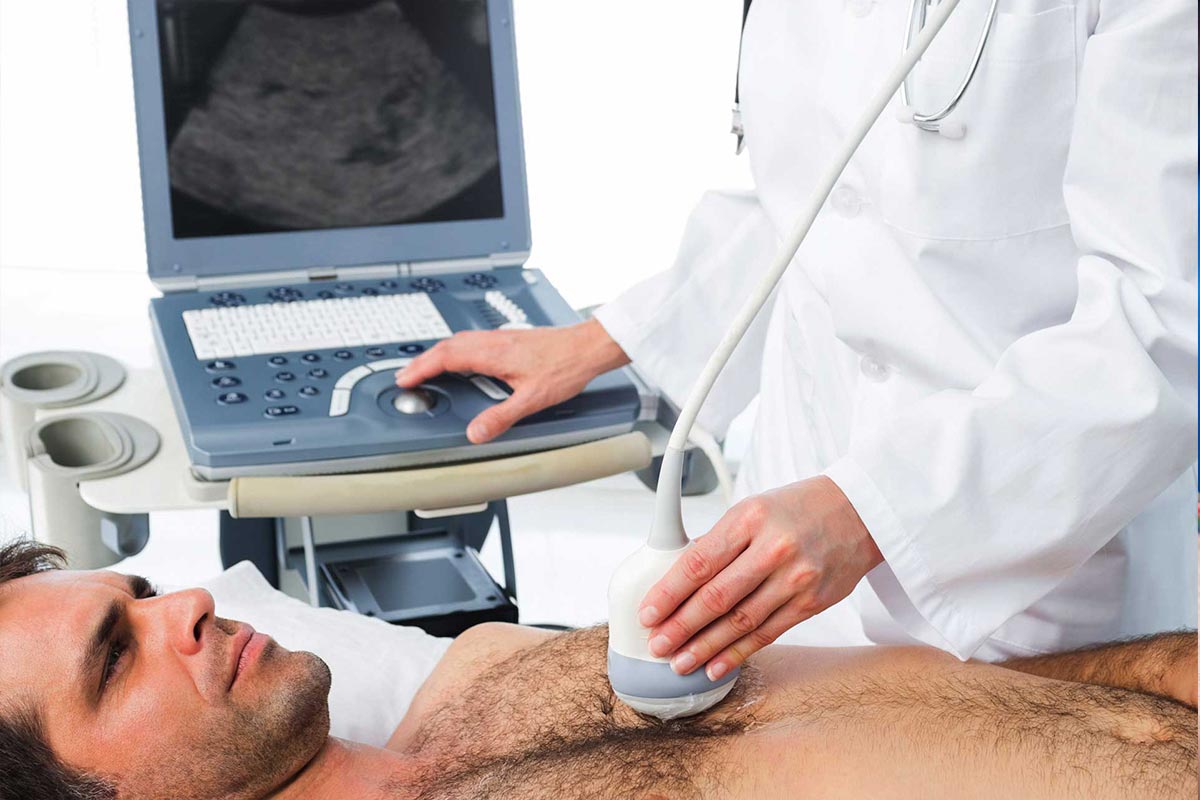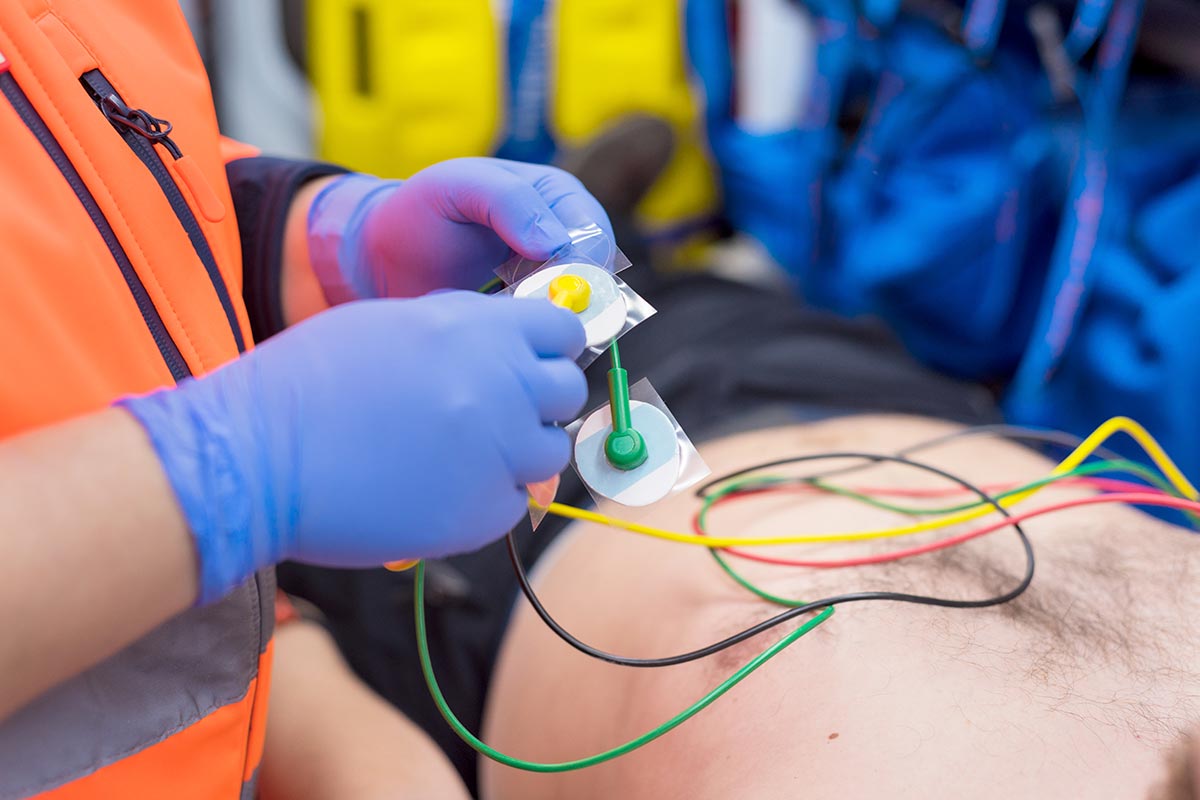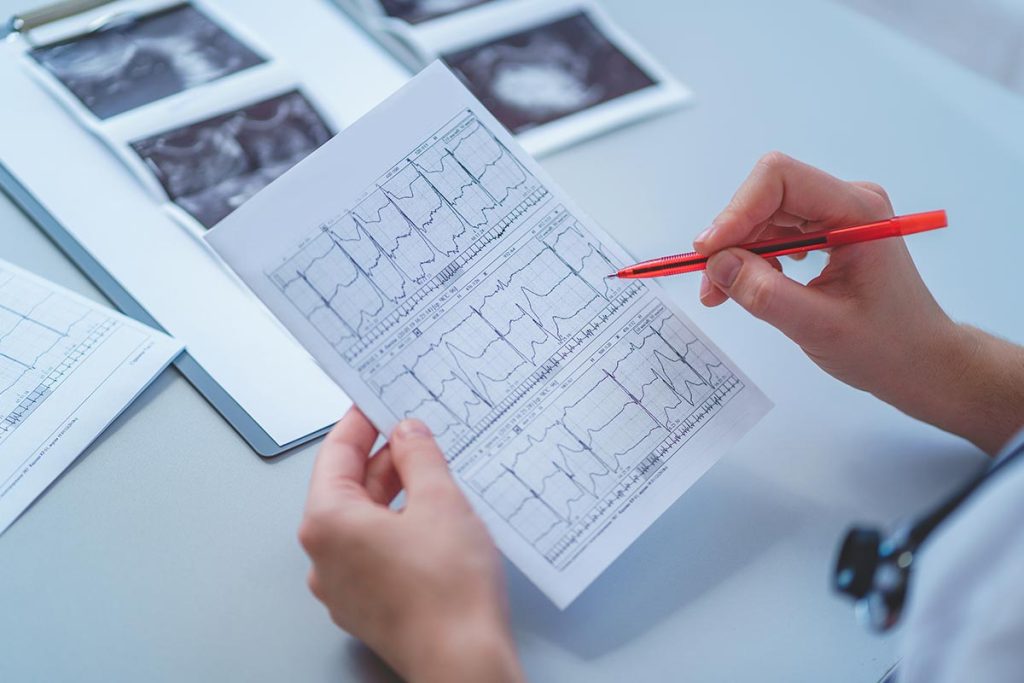Cardiac Ultrasound or Echocardiogram Specialist in Michigan
Cardiac ultrasound, also known as echocardiography, is a non-invasive imaging technique that uses sound waves to create real-time images of the heart. It has become an essential tool in the diagnosis and management of various cardiac conditions, including heart disease, heart failure, and valvular disorders. At CardioQ, a leading healthcare provider in Michigan, we offer advanced diagnostic cardiac ultrasound services to patients of all ages.
Our team of highly trained and experienced cardiologists and sonographers use state-of-the-art equipment and techniques to provide accurate and reliable cardiac ultrasound results. We believe in a patient-centered approach and strive to provide personalized care to each of our patients. Our goal is to help our patients understand their heart health and make informed decisions about their treatment options.
Whether you are experiencing symptoms of a cardiac condition or have been referred by your physician for further evaluation, our diagnostic cardiac ultrasound services at CardioQ can provide valuable insights into your heart health.
Contact us today to schedule an appointment and take the first step towards a healthier heart.


Echocardiogram (Echo) or Diagnostic Cardiac Ultrasound
An echocardiogram, also known as an echo. It is a non-invasive test or cardiovascular diagnostic which uses sound waves to build up a detailed picture of your heart. It is similar to ultrasound scanning used in pregnancy, also known as cardiac ultrasound.
At CardioQ – Heart & Wellness Center, we have Echocardiogram Specialist in Michigan (Beverly Hills).
An echo looks at the structures of your heart, and gives information on how well your heart is pumping.
It is done by Echocardiogram Specialist if you have had a heart attack or if you have been diagnosed with heart failure. As it shows how much heart muscle is affected. It is also used routinely to diagnose and assess heart valve problems or congenital heart disease (heart conditions people are born with).

Time it Takes
It varies from person to person and can take from 15 minutes up to an hour. It’s a very common, safe test, and most people find it’s not uncomfortable, although you may feel a bit of pressure as the Echocardiogram Specialist presses the probe onto your chest to obtain the best images.
Getting the Results
However, the images from the scan will usually need to be analyzed before the results are sent to the doctor who requested the test done by Echocardiogram Specialist.
Your doctor will then discuss the results with you during your next appointment.
Common questions
Our Echocardiogram Specialist in Michigan at CardioQ may perform an echo if you have signs and symptoms of heart problems, such as:
- Heart failure.
- Heart murmurs.
- Congenital heart defects – for example, a hole in the heart.
Your echo results can reveal:
- How your heart muscle is pumping.
- The size of your heart.
- How your valves are working.
- If there is any fluid around your heart.
- If there are any blood clots inside your heart.
- If there are any problems with your heart’s major blood vessels such as your aorta.
TransOesophageal Echocardiogram (TOE)
A transoesophageal echocardiography, or TOE, takes detailed pictures of your heart from your oesophagus (the tube that connects your throat to your stomach) which lies behind your heart. This test is used to get closer and more defined images of the heart as it can detect things that are not as easy to see with a transthoracic echo.
Stress echocardiogram
An echocardiogram may be done while the heart is beating faster – a stress echo is performed while deliberately increasing the heart rate with either exercise on a treadmill or stationary bike, or with medication given through a vein. This test can help to diagnose coronary heart disease as it shows the coronary arteries in the heart aren’t getting as much oxygen rich blood as they should.
Foetal echocardiogram
Foetal echocardiograms are used to help identify heart defects before a child is born.
Bubble echo
This is sometimes called a bubble study.
A bubble echo involves performing an echo in the usual way whilst a small amount of salt water (saline) is injected into your bloodstream, through a vein in your arm. The salt water contains tiny bubbles which show up clearly on the scan pictures, and can be a useful way to identify a hole in the heart. It may be carried out after a stroke or TIA, or after complex heart surgery.
The test is quick and painless, and the bubbles are harmless.
You will be asked to lie on your side and ‘swallow’ a small probe which is mounted at the end of a flexible tube. A local anaesthetic that numbs the area will be sprayed onto the back of your throat and you will be offered a short-acting light sedative to help you relax. The procedure usually takes about 30 minutes.
The technician will obtain the images they need and remove the tube as soon as the procedure is done.
During your echocardiogram at CardioQ – Heart & Wellness Center, you lie back on a table and relax. Your Echocardiogram Specialist places several electrodes on specific points on your chest.
These electrodes have wires attached to them that link to the electrocardiograph (ECG or EKG) machine to monitor your heart function.
After placing a clear gel on your chest, your technician glides a handheld transducer over your chest. The transducer sends out high-frequency sound waves that help create images of your heart. (No radiation is used.)
Your technician may ask you to move into a certain position or hold your breath for brief periods to gather in-depth pictures of your heart and surrounding structures. This type of echocardiogram, called a transthoracic echocardiogram, may be used with a Doppler echocardiogram.
A Doppler echocardiogram measures the speed and direction of your blood flow through your heart and provides information about what the images show.
Your entire echocardiogram test takes less than an hour to complete from the time you walk in the door, and you can return to your normal activities afterward.
At CardioQ – Heart & Wellness Center, we have Echocardiogram Specialist in Michigan (Beverly Hills) to perform Cardiovascular Diagnostics.
Once your Echocardiogram Specialist at CardioQ – Heart & Wellness Center evaluates your echocardiogram, they talk with you about your results. You may meet with your cardiologist right after your echocardiogram or during a follow-up visit.
Abnormalities shown in your echocardiogram can help your doctor find out why you have:
- Chest pain
- Poor blood flow
- Abnormal heart rhythm
- Decreased heart function
Once your cardiologist at CardioQ – Heart & Wellness Center diagnoses you, they counsel you about any other screenings you may need, as well as any necessary treatments.
CardioQ provides in-office echocardiograms to evaluate your heart health. You can book your echocardiogram by contacting us or by phone with the office directly.
